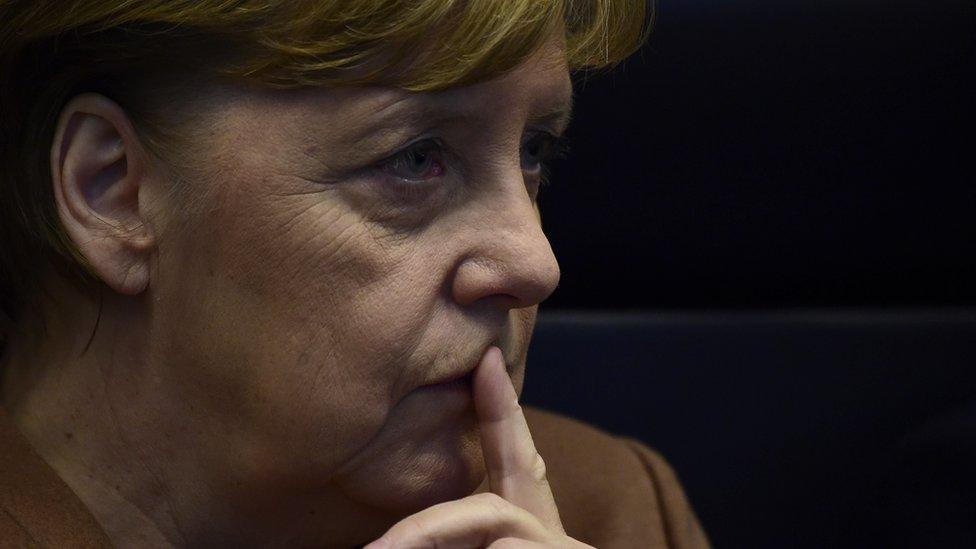Press review: France's 'Mr Nobody' Francois Fillon
- Published
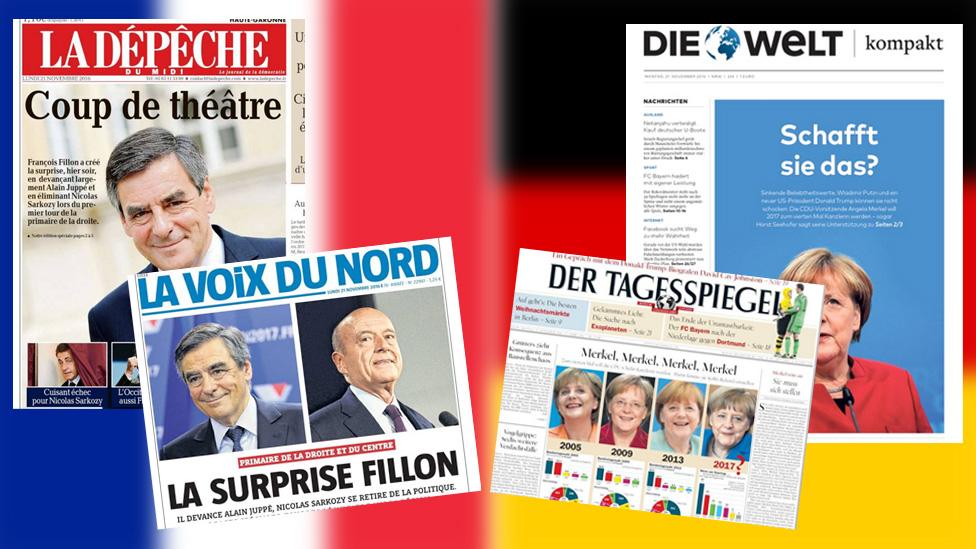
Francois Fillon and Angela Merkel capture European headlines
Europe's press is taking stock of Francois Fillon and Angela Merkel as an EU election year beckons.
Mr Fillon, a former French prime minister, surprised many by reaching the run-off in the conservative primaries this weekend and could well succeed Francois Hollande next year.
Chancellor Merkel has surprised rather fewer with her announcement that she wants to stand for a fourth term.
'The Revenge of Mr Nobody'
French conservative daily Le Figaro, external says Mr Fillon, the representative of the "calm right", "confounded all predictions"
He benefited, political editor Alexis Brezet argues, from "enduring sentiment against Nicolas Sarkozy", the ex-president who lost the French Republicans' primaries on Sunday.
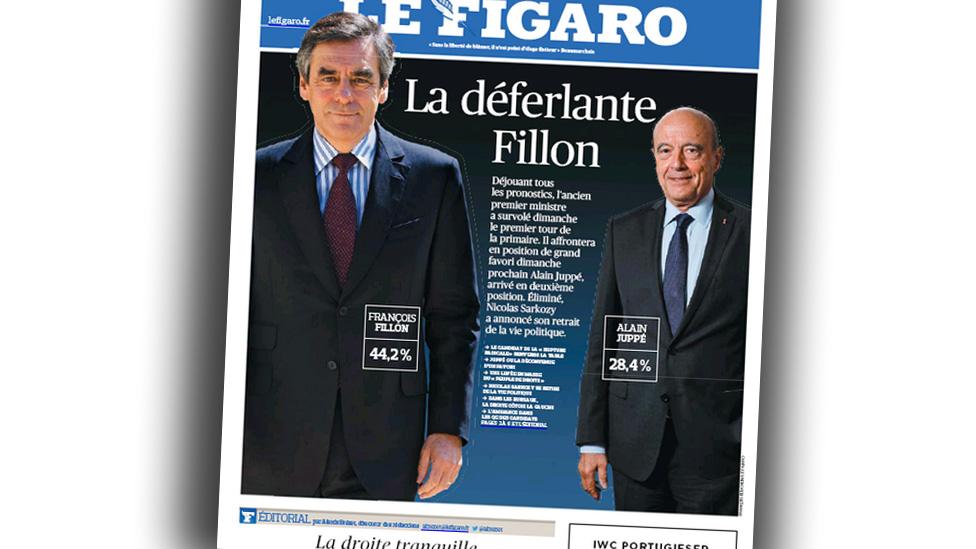
Le Figaro reports "the Fillon surge"
In the centre-left Le Monde, external, commentator Vanessa Schneider sees the "revenge of Mr Nobody" after a series of political humiliations, notably losing the race for the leadership of the UMP, as the Republicans were then known, in 2012.
Her colleague Francoise Fressoz agrees, external that Mr Fillon represents a win for the "traditional, liberal-Catholic right".
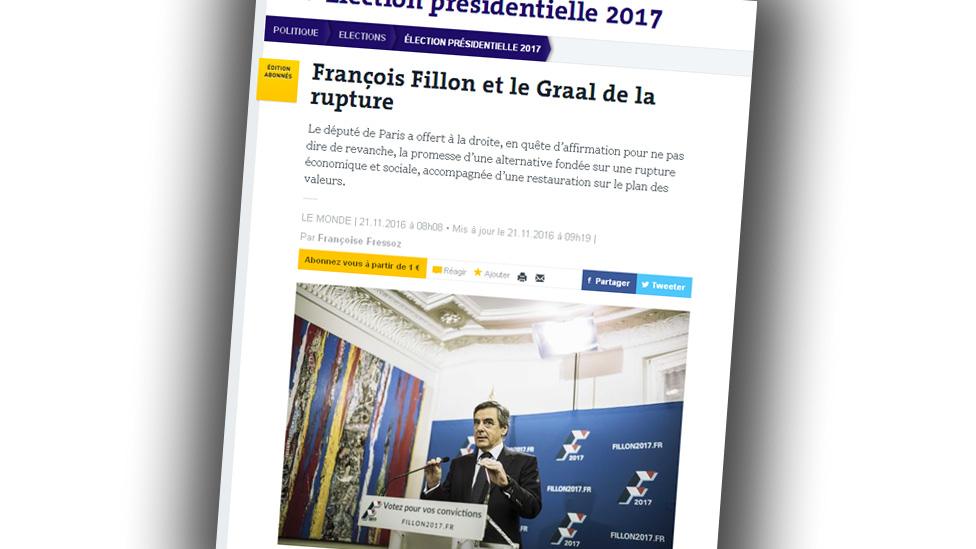
Le Monde says Mr. Fillon can heal the spit in the Right
Belgium's Le Soir, external sees the rise of Francois Fillon as bad news for the ruling French Socialists and attributes Mr Sarkozy's unexpected fall to his "polarising character".
"The Republican right found a leader on Sunday and the left woke up on Monday plunged in an abyss of confusion," it concludes.
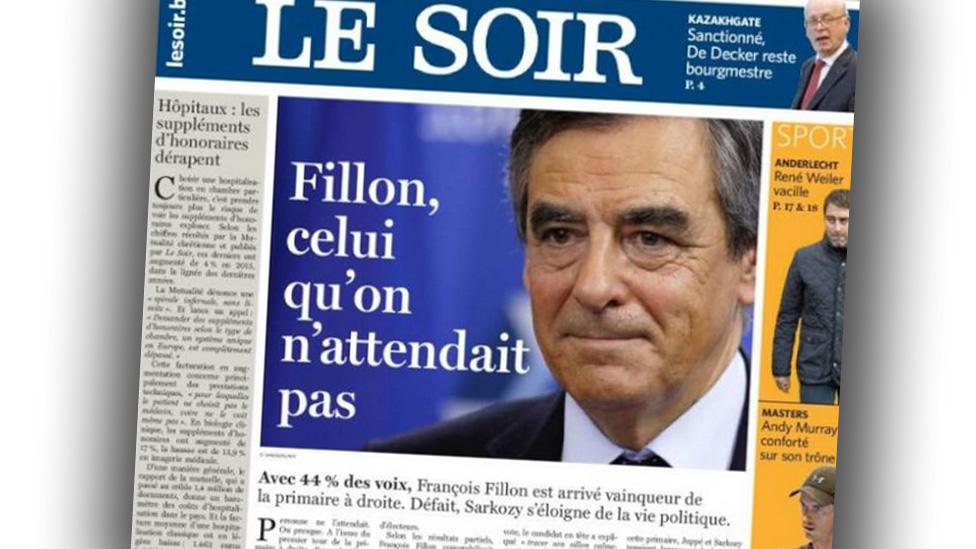
Belgium's Le Soir calls Francois Fillon the one we didn't expect
Christian Wernicke, reporting from Paris for Germany's Sueddeutsche Zeitung, external, notes Mr Fillon's "highly radical" economic programme, in particular proposals for drastic cuts in public spending.
Aldo Cazzullo of Italy's Corriere Della Sera, external, predicts a contest between Mr Fillon and the National Front's Marine Le Pen next year.
He is sure that left-wing voters "who would have hesitated to vote for Sarkozy" would opt for Mr Fillon in the run-off as a "victory for Marine would be the end of Europe".
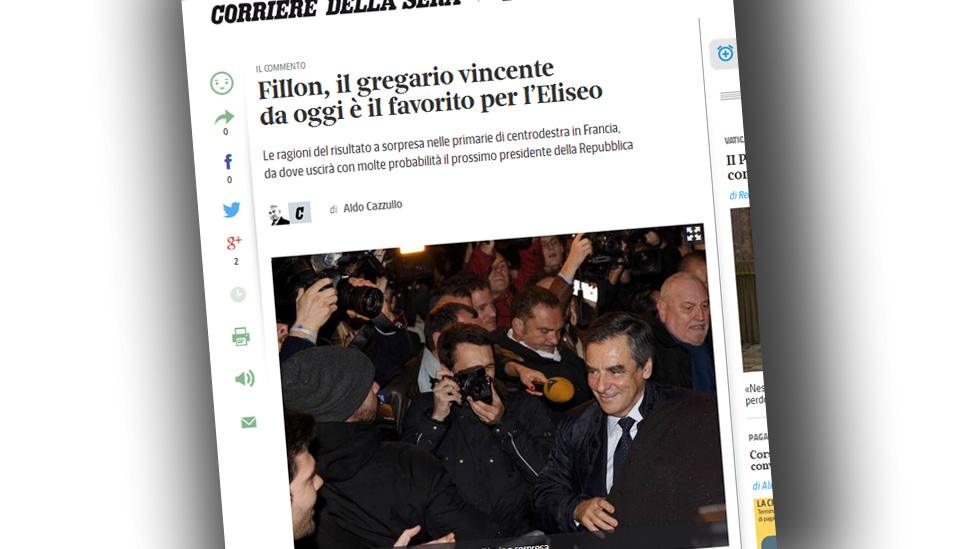
Corriere Della Sera says Mr. Fillon "favourite for the Elysee"
In search of vision
German papers warn of trouble looming for Mr Merkel if she wins next year's election.
Alessandro Peduto of Saxony's Freie Presse, external argues that the opposition Social Democrats' weakness is her main strength" and a fourth term could "exacerbate social polarisation" to the advantage of the anti-migrant AfD party.
He thinks she will struggle to "pacify German society after the chaos of the refugee crisis, let alone find quick solutions to the many crises in Europe and further afield".
Anja Maier, the Bundestag correspondent of leftwing Tageszeitung, external, says the AfD will campaign on a slogan of "'Renewal vs Standstill" in the "most gruelling election the country has ever seen".

Die Tageszeitung says Merkel becomes Kohl
In conservative Die Welt, external, Torsten Krauel also worries that Mrs Merkel is out of touch with the public mood.
"She wants to stabilise a political centre ground that more and more people do not consider the centre ground, and defend Western values that voters do not think of as their values any more," he warns.
Die Zeit, external's Ludwig Greven raises the spectre of Hillary Clinton's defeat in the US presidential election.
It warns that the "sober, rational working out of problems, without a vision or narrative explanation" is "not enough to convince and inspire people".
Thomas Wieder, the Berlin correspondent of France's Le Monde, external, says Mrs Merkel is the "anti-populist candidate", the "guarantee of stability in a chaotic world".
Nicolas Barotte in Le Figaro, external focuses on the Social Democrats, seeing them as having "no strategy" to defeat Mrs Merkel in 2017, and expects her to take advantage of months of wrangling before they chose their candidate for the chancellorship.
The Netherlands' De Volkskrant , externalconcludes grudgingly that Angela Merkel's experience and the respect she enjoys makes her the "best candidate to represent Europe on the bizarre world stage at present", especially as she "does not raise unrealistically high expectations".
The paper acknowledges that she took the lead in Europe on migration, Ukraine and the euro, but adds that the "shaky" state of these issues makes her the "personification of Europe's identity crisis".
BBC Monitoring reports and analyses news from TV, radio, web and print media around the world. You can follow BBC Monitoring on Twitter, external and Facebook, external.
- Published7 September 2016
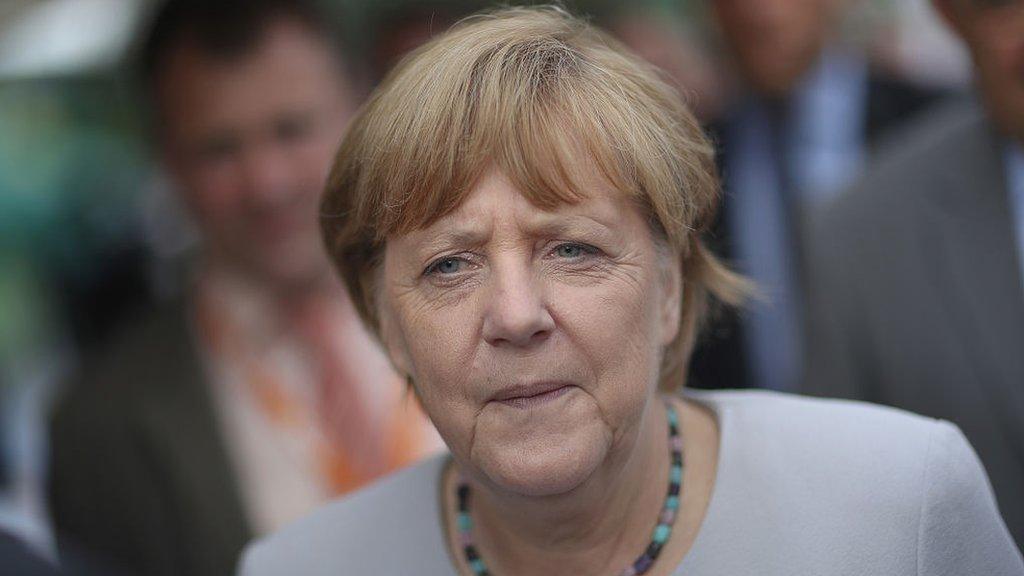
- Published19 September 2016
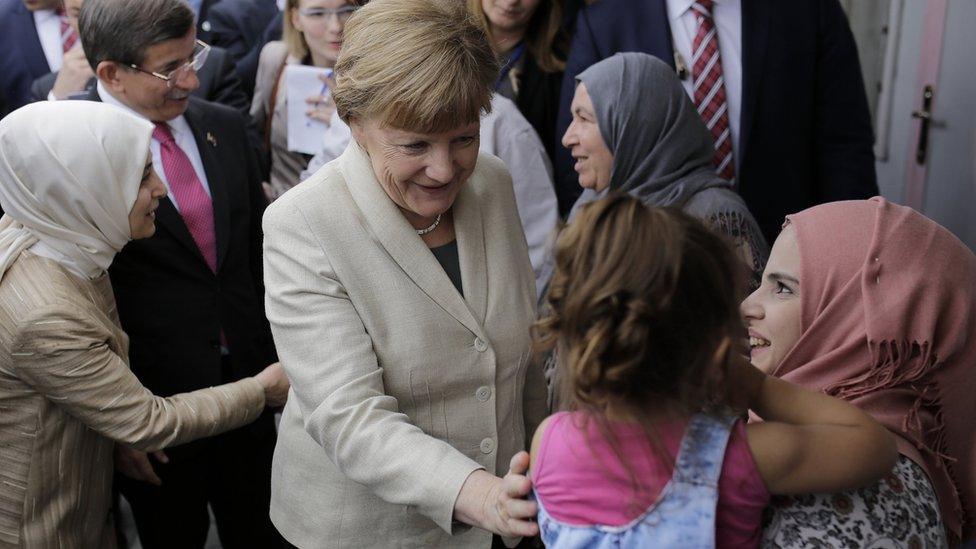
- Published3 June 2019
